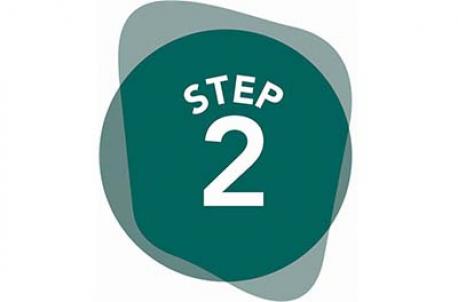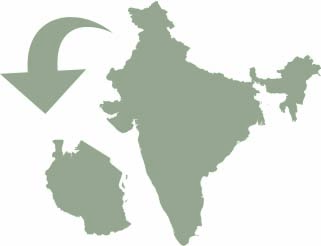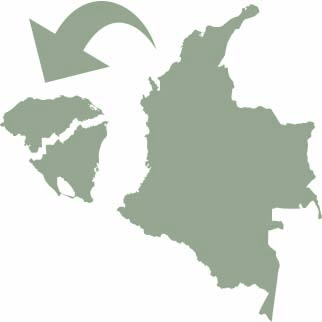
Which individuals or groups have the most relevant and transferable knowledge, development experience, or a potential solution?
Do they have the resources and capacity to share it?
A knowledge provider has a proven solution or development experience to share. Individuals, groups, or institutions hailing from the private, public, or civil sectors can all be knowledge providers. They can come from the same country or region as the knowledge seeker, or from somewhere completely different. In some instances, the roles of provider and seeker are not very distinct, with both sides co-generating or providing and receiving knowledge on a common topic.
As the broker, you are often tasked with finding the knowledge providers. When selecting them, consider whether they have
- demonstrated success in effectively addressing similar development challenges.
- relevant experience in providing this knowledge to people from other places, cultures, and learning backgrounds.
- familiarity with the cultural and historical contexts of participant groups.
- resources to plan and implement the knowledge exchange in the proposed timeframe.
- readiness to deliver, shown by confirmed commitment and understanding of responsibilities.
- any prior relationship with the knowledge-receiving institutions, groups, or individuals.
- understanding of potential logistical complications and risks, such as language issues or travel challenges.
As you did when selecting potential participants, try to find a good mix of knowledge providers who can share different perspectives on the issue. You want to expose participants to many points of view to allow them to see how something has worked, challenges that have been overcome, and pitfalls to avoid. The more complex a problem, the harder it can be to find a suitable knowledge provider. You may not – in fact, you probably won’t – get it right the first time. Don’t get discouraged. You and your participants will explore a range of possibilities before finding a truly fitting match. Listen to your clients, know when their needs have evolved, and adjust your plan accordingly. Remember, it is more important to find a provider with relevant experience than opt for one using the “best practices.”

Tanzania and India Exchange — Knowledge Providers
- India’s National Dairy Development Board: This preeminent oversight agency was instrumental in catalyzing the country’s “White Revolution,” which led to an increase in India’s milk production from 20 to 100 million metric tons in only 40 years. The NDDB is interested in sharing its experiences in analyzing constraints and restructuring dairy operations, and brings a proven track record in undertaking exchanges worldwide.
- The Gujarat Cooperative Milk Marketing Federation: Can provide direct linkages to a cooperative that dramatically scaled up its operations, especially through its global brand, AMUL.
- Both organizations have confirmed resources to deliver all exchange activities within the noted timeframe

Honduras, Nicaragua, and Colombia Exchange — Knowledge Providers
- The Miskito communities, the Honduran Government, and the World Bank identified Nicaragua and Colombia as ideal knowledge providers because both countries had achieved substantial progress in the recognition of indigenous peoples’ land and territorial rights and shared a common cultural and linguistic history with Honduras.
- Nicaragua was one of the countries in Latin America with the most advanced legal framework for recognizing indigenous land and territorial rights, and Colombia had given unprecedented recognition to the land rights of indigenous peoples with about 30 percent of the country’s territories being titled on behalf of indigenous and Afro-descendent communities.
The Power of Connecting to Relevant Experience
Over a decade of civil war and conflict nearly destroyed Liberia’s public administration. Qualified civil servants in procurement, accounting, auditing, and other administrative areas fled as salaries and working conditions worsened. Despite the efforts of the government and international partners, including the World Bank, institutions providing training for government workers, such as the Liberia Institute of Public Administration (LIPA), still lack the capacity to perform efficiently. At the same time, the Kenya Institute of Administration (KIA) has become renowned for its success in supporting reforms in Kenya’s public sector and promoting transparency and accountability. A knowledge exchange supported by the World Bank connected senior LIPA staff to their Kenyan peers to learn from their experiences in designing and implementing training programs for public servants, as well as in improving management skills.
“The exchange has enabled us to streamline and document major operational policies to include human resources, training, research, consultancy, procurement, finance, library services, among others,” said Harris Tarnue, LIPA’s Deputy Director General for Research and Consultancy and Team Leader. “Application of marketing strategies and other skills acquired have increased the number of Civil Servants and private clients now accessing LIPA services.” They have also established an executive board for LIPA (it had been operating without one since its inception in 1969) and prepared a list of board members for approval by the President of Liberia. As a follow up to the initial exchange, LIPA and KIA agreed on a memorandum of understanding that included continued guidance, and support of Liberia’s reform efforts.
Knowledge Broker: Raymond Muhula, Public Sector Specialist, The World Bank.

A knowledge exchange benefits immensely from a strong, well-networked broker to facilitate dialogue and build trust. The quality of an exchange is often higher when the broker knows both demand and supply sides well.
When considering knowledge providers for study tours, try to avoid high tourist-value destinations. You can reduce the “junket value” of the study tour this way.

 China
China Colombia
Colombia Denmark
Denmark India
India Indonesia
Indonesia Mexico
Mexico Russian Federation
Russian Federation Spain
Spain United Kingdom
United Kingdom